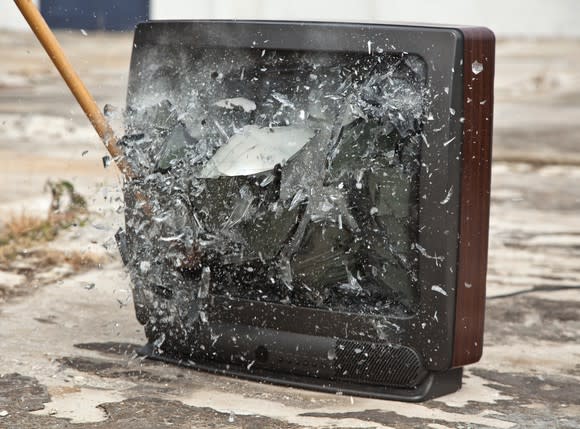Why Corning's Stock Soared More Than 30% in 2017
What happened
Shares of glassmaker Corning Incorporated (NYSE: GLW) rose 31.8% in 2017, handily outpacing the S&P 500. That was on top of a 32.8% gain in 2016. And with additional gains so far in 2018, the company's stock is up 89.6% since the beginning of 2016, just over two years ago.
Luckily, this trend seems likely to continue into the new year.
So what
Corning's business consists of its bread-and-butter display technologies segment, and a bunch of smaller business units. Display technologies, which manufactures the glass for LCD screens of all sorts -- but primarily TVs -- is responsible for 30% of Corning's sales and 60% of its profits.
Unfortunately, display glass prices have been falling for several years, which has caused Corning's bottom line a lot of problems. Fortunately -- and one of the reasons the company did so well in the first nine months of 2017 -- those price drops have gotten smaller and smaller, which has helped Corning keep profit shrinkage to a minimum. That allowed some of Corning's smaller units to pick up the slack, which they did in a big way last year.

Corning's reliance on TV display glass has waned as markets for its other products have grown. Image source: Getty Images.
Of particular interest to investors should be the company's specialty materials segment, which manufactures the flexible and shatter-resistant Gorilla Glass. Gorilla Glass is primarily used in smartphone screens, including every Apple iPhone and iPad ever manufactured. Corning's fifth-generation Gorilla Glass 5, which it rolled out in 2016, is now being used in products by virtually every major smartphone manufacturer, including Samsung's Galaxy S8. That widespread usage helped increase the segment's profits 66% year over year for the first nine months of 2017.
And speaking of big profit increases, net income was up 60.1% year over year in the company's second-largest division, optical communications. The segment primarily manufactures optical fibers -- a lot of them. In 2017 it produced its one billionth kilometer of optical fiber, and also benefited from a commitment by Verizon to buy at least $1.05 billion of optical fiber and associated products from Corning for its network.
Meanwhile, the company is continuing to develop new applications for its glass in automobiles, pharmaceutical packaging, and more.
Now what
Corning's new product lines -- and its successful upgrades to existing ones -- outside of its display technologies segment are helping to reduce its overall reliance on TV sales and display glass prices. And with the decline in display glass prices continuing to slow -- at least for now -- Corning should continue to reap the benefits of its other units' outperformance. With big names like Apple, Samsung, and Verizon among its customers, there's good reason to believe that Corning will continue to outperform in 2018.
More From The Motley Fool
John Bromels owns shares of Corning. The Motley Fool recommends Corning. The Motley Fool has a disclosure policy.
